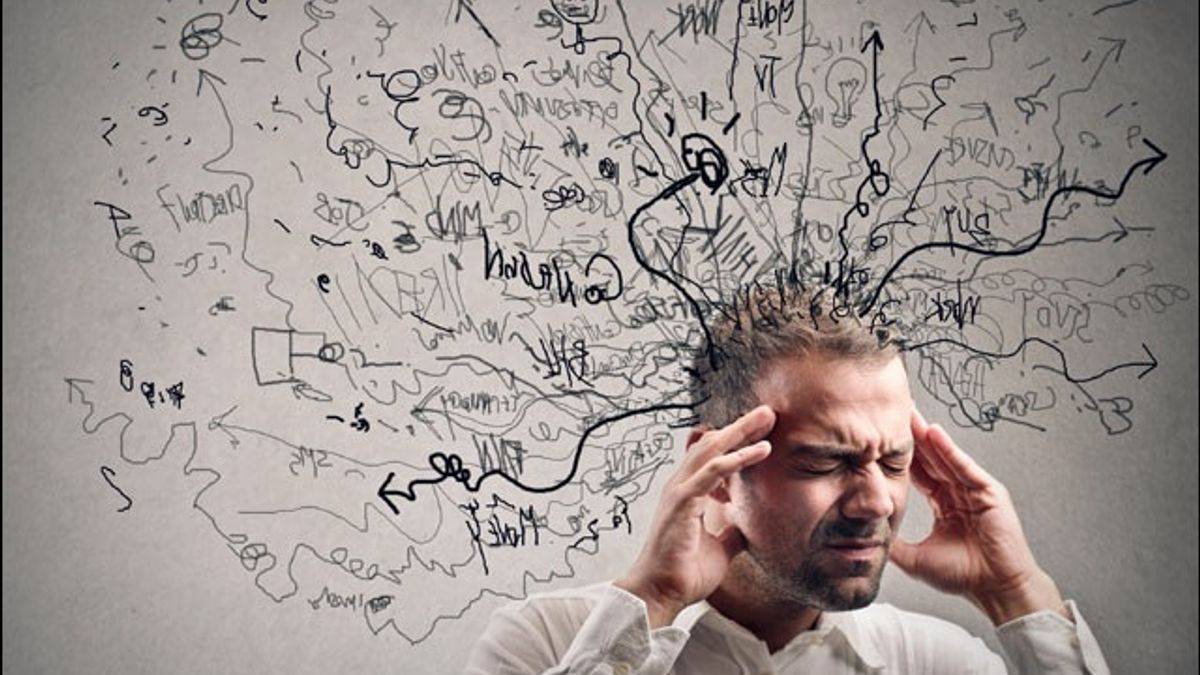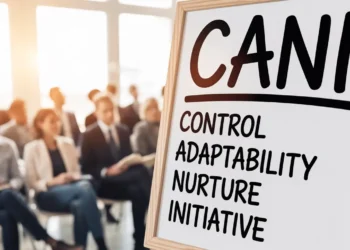Lack of concentration and focus is a common issue that both children and adults experience. It refers to the inability to maintain attention or give full attention to tasks at hand, whether it be studying, working, or even engaging in social interactions.
When we lack focus, our minds tend to wander, making it challenging to complete tasks efficiently. Many people experience this issue from time to time, but when it becomes chronic, it can negatively affect our daily lives.
The Importance of Concentration and Focus in Daily Life
Concentration and focus are essential skills for success in all aspects of life. These skills play a critical role in academic success as students need focused attention to absorb information effectively.
In addition to schoolwork, concentration also plays a crucial role in career development as well as personal relationships. Whether it be completing important work projects or building meaningful connections with others, the ability to stay focused on tasks at hand is essential.
With the rise of technology use in modern society, maintaining focus has become more challenging than ever before. The constant notifications from cell phones and social media platforms can distract us from what we should be doing.
The impact of these technological advancements on our concentration levels has led many people experiencing difficulties focusing for extended periods. Research shows that those with poor concentration levels are more likely to struggle with anxiety and depression than those who have strong focus abilities (source).
Additionally, people with ADHD commonly suffer from poor concentration levels than others (source). Lack of focus can impact various areas of life significantly.
Causes of Lack of Concentration and Focus
Physical Factors: Sleep Deprivation, Poor Nutrition, and Health Conditions
Lack of sleep is a common physical factor that can negatively affect concentration and focus. Numerous studies have shown that getting less than the recommended 7-8 hours of sleep per night causes fatigue, sluggishness, and lack of mental clarity. Additionally, poor nutrition can also lead to decreased concentration levels.
Diets high in processed foods or lacking in essential nutrients like iron or vitamin B12 can result in brain fog and difficulty concentrating. Certain health conditions such as ADHD, thyroid disorders, and chronic pain can also contribute to lack of focus.
For example, ADHD is a neurological disorder characterized by attention deficits and hyperactivity. Individuals with ADHD commonly struggle with maintaining attention on tasks for extended periods.
Psychological Factors: Stress, Anxiety, and Depression
Stress is a common psychological factor that can significantly impact concentration levels. Chronic stress has been linked to cognitive decline due to the prolonged release of cortisol (the body’s stress hormone).
Similarly, anxiety disorders such as generalized anxiety disorder (GAD) or panic disorder can cause intrusive thoughts that interfere with task completion. Depression is another psychological factor that affects concentration levels.
Symptoms like apathy or feelings of hopelessness often lead to difficulty focusing on tasks. The low mood associated with depression may also decrease motivation to complete tasks.
Environmental Factors: Noise, Distractions, and Technology
Environmental factors such as noise pollution or distractions from technology are significant contributors to poor concentration abilities. Noise pollution from traffic or construction sites may disrupt an individual’s ability to concentrate on work-related tasks at home or while working in an office environment.
Distractions from technology are becoming increasingly prevalent due to our reliance on devices like smartphones or tablets in daily life. Constant notifications and the temptation to browse social media may decrease the ability to maintain attention on a specific task.
The overuse of technology may also lead to eye strain or headaches, further decreasing concentration levels. Numerous factors can contribute to lack of concentration and focus.
Physical factors such as sleep deprivation or poor nutrition, psychological factors like stress or anxiety, and environmental factors such as noise pollution or distractions from technology can all make it challenging to stay focused on tasks. It’s essential for individuals to identify their personal triggers for lack of concentration so that they can implement strategies that work best for them.
The Perils of Lack of Concentration and Focus
Decreased productivity
One of the most obvious effects of a lack of concentration and focus is decreased productivity. When we are unable to concentrate, it becomes difficult to complete even the simplest tasks, let alone more complex ones. This can lead to feelings of frustration and helplessness, which only serve to exacerbate the problem.
When we feel like we’re not getting anything done, it’s easy to become demotivated and lose all sense of purpose. If you’re constantly struggling with productivity due to a lack of concentration and focus, it’s important to take proactive steps towards finding a solution.
This might include setting small goals for yourself each day or breaking down bigger tasks into more manageable pieces. It might also involve seeking out additional resources or support from colleagues or loved ones who can help keep you on track.
Poor academic or work performance
Another significant consequence of a lack of concentration and focus is poor academic or work performance. Whether you’re a student struggling to keep up with coursework or an employee who can’t seem to get anything done at work, the inability to concentrate can have serious consequences for your future prospects. In many cases, individuals who struggle with concentration may feel like they’re simply not cut out for certain types of work or learning environments.
However, this couldn’t be further from the truth. With the right strategies in place – such as developing stronger study habits or finding ways to minimize distractions – anyone can improve their ability to concentrate and succeed academically or professionally.
Increased stress levels
When we’re unable to concentrate on our tasks at hand, it’s easy for stress levels to skyrocket. We may find ourselves constantly worrying about deadlines that are looming overhead or feeling anxious about our inability to stay focused on what we need to do. Over time, these feelings of stress and anxiety can take a serious toll on our mental health and wellbeing.
It’s important to take steps to manage stress when we’re struggling with concentration issues. This might involve finding ways to relax and unwind after a long day or practicing mindfulness techniques such as meditation or deep breathing exercises.
Strained relationships
It’s worth noting that the effects of a lack of concentration and focus can extend beyond the workplace or classroom. In some cases, difficulty concentrating can even strain personal relationships with friends, family members, or romantic partners.
For example, if we’re constantly distracted during social interactions or unable to fully engage in conversations with those around us, it’s possible that people may start to feel like we’re not interested in spending time with them. Over time, this could lead to feelings of isolation and loneliness – both of which can have negative consequences for our mental health.
If you’re experiencing relationship problems as a result of difficulties with concentration and focus, it’s important to be honest with those around you about what you’re going through. Seeking out support from loved ones who are understanding and compassionate can make all the difference in building stronger connections over time.
Strategies for Improving Concentration and Focus
Practice Mindfulness Techniques
One of the most effective ways to improve concentration and focus is by practicing mindfulness techniques such as meditation or deep breathing exercises. Mindfulness helps train the brain to focus on the present moment without getting distracted by external factors.
Meditation can be done for just a few minutes each day, and it has been shown to significantly improve attention span. Deep breathing exercises can also be beneficial in enhancing concentration because they allow the body to relax, thus reducing stress levels.
A study published in the Journal of Cognitive Enhancement found that mindfulness meditation enhanced cognitive control, which includes processes such as regulating attention, inhibiting distracting information and initiating actions. To get started with mindfulness practice, find a quiet space where you won’t be disturbed and begin with just five minutes of deep breathing or meditation exercises.
Create a Conducive Environment for Concentration
Distractions are one of the biggest obstacles to concentration and focus. Creating a conducive environment is important for improving attention because it minimizes disruptions that take away from productivity.
One way to create such an environment is by minimizing distractions – this includes things like turning off notifications on your phone or email or using noise-canceling headphones if you work in a noisy environment. Another way to create an optimal work environment is by organizing your workspace.
A well-organized workspace allows you to easily access everything you need while keeping distractions at bay. Ensure that your workstation has ample lighting, comfortable seating, and good air circulation.
Prioritize Tasks
When we have too many tasks on our plate, it can feel overwhelming which makes it difficult to stay focused on any one task. Prioritizing tasks is essential for managing workload effectively while maintaining high levels of productivity.
Begin by listing out all the tasks you need to complete and then rank their importance and urgency. Work on the most urgent tasks first and take breaks between tasks to avoid burnout.
Another way to prioritize effectively is by breaking up big projects into smaller, more manageable tasks. This approach makes it easier to focus on one specific task at a time without feeling overwhelmed by the entire project.
Take Breaks to Recharge
Taking breaks is critical for maintaining high levels of productivity and preventing burnout. Our brains can only concentrate for so long before they need a break.
Taking regular breaks gives your brain a chance to recharge so that you can return to work with renewed focus and energy. One effective technique for taking breaks is the Pomodoro Technique, which involves working for 25 minutes followed by a 5-minute break.
After four 25-minute working sessions, take a longer break of around 20-30 minutes. During these breaks, try doing something completely unrelated to work such as going for a walk or listening to music.
Improving concentration and focus requires consistent effort and practice. Mindfulness techniques like meditation are useful in training the brain while creating a conducive environment minimizes distractions that disrupt productivity.
Prioritizing tasks too helps manage workload effectively while taking regular breaks rejuvenates the body and mind. Incorporating these strategies into your daily routine will help improve concentration levels thus enhancing overall productivity at work or school.
Small Details That Can Help Improve Concentration and Focus
Taking short naps during the day can improve concentration levels significantly. A power nap that lasts between 15 to 20 minutes can help restore alertness and increase productivity. Napping enhances memory consolidation, which helps in retaining information that was learned earlier in the day.
Taking Short Naps during the Day
It is important to ensure that your nap does not last for more than 30 minutes as it could lead to grogginess or difficulty falling asleep at night. Additionally, a nap should be taken in a quiet, dark room with a comfortable temperature.
This helps create an environment conducive to restful sleep and rejuvenation. Napping should also not replace regular nighttime sleep as it is essential for overall wellbeing.
Chewing Gum while Studying or Working
Chewing gum while studying or working on tasks requiring concentration has been found to enhance cognitive performance. Gum chewing increases blood flow and oxygen supply to the brain, thereby aiding in focus and attention span. Moreover, chewing gum contributes towards reducing stress levels due to its calming effect on the body.
This means that individuals who chew gum are less likely to experience stress-related distractions while performing mental tasks. It is important to note that sugar-free gum is recommended for this purpose as sugary gums may lead to health issues such as tooth decay.
Listening to Music That Doesn’t Have Lyrics
Music has been found to have positive effects on concentration levels when performed without lyrics in genres such as classical music, instrumental jazz or ambient sounds. This type of music has a calming effect on the mind and reduces stress levels thus improving cognitive performance. Music helps block out background noises which makes it easier for an individual performing mental tasks such as reading or studying.
However, it is important not listen music too loudly so that it does not become a distraction. Moreover, it should be understood that music is not helpful for everyone and some may find it more distracting than helpful.
Drinking Water Regularly
Drinking water regularly helps improve cognitive function and concentration levels. Dehydration can lead to fatigue, headaches, and difficulty in focusing. It is recommended to drink at least 8-10 glasses of water per day to maintain proper hydration levels.
Moreover, drinking water can help eliminate toxins from the body which enhances overall mental and physical wellbeing. It is also beneficial to drink water before performing mental tasks as this helps improve cognitive performance.
Small details such as taking short naps, chewing gum while studying or working, listening to music that doesn’t have lyrics and drinking water regularly can contribute greatly towards improving concentration and focus levels. It is important to note that these tips are not one-size-fits-all solutions and individuals should experiment with each method to determine what works best for them personally.
The Importance of Maintaining Good Concentration Levels
Maintaining good concentration levels is essential for success in almost every aspect of life. Whether it is achieving success in our careers or maintaining healthy relationships with our loved ones – without adequate attention span it will be hard for us to excel in anything.
Concentration is needed in most professions where you need to solve complex problems such as medical practitioners who diagnose illnesses; engineers who design buildings or machines; lawyers who argue cases before court judges among others. Good attention span boosts creativity leading to new discoveries which ultimately results in inventions.
It’s also worth noting that having good concentration abilities can help you identify and manage stressors in your life. A person is better equipped to handle stress when they can remain focused on tasks, goals, and objectives.
Final Thoughts on How Individuals Can Improve Their Concentration Levels
It’s important to acknowledge that developing good concentration skills requires consistency, patience, and effort. But most of all it requires a lot of practice.
Practicing mindfulness techniques such as meditation or deep breathing exercises can be a great place to start. Creating an environment free from distractions like noise or technology is also important.
Putting away the phone or any other device during study time will ensure that one is not easily distracted by notifications. Another simple way to improve concentration levels includes taking breaks throughout the day for rest or relaxation.
This could be anything from going for a walk outside to taking a power nap – anything that helps you recharge your brain. Maintaining good concentration levels are very important for success in all aspects of life.
With the causes and effects being discussed at length it’s clear how detrimental lack of concentration and focus can be to our daily lives. However, with consistent effort and practice of strategies such as mindfulness techniques like meditation or deep breathing exercises; creating an environment free from distractions; prioritizing tasks so we don’t feel overwhelmed – people can build these skills over time leading ultimately to success in both their personal and professional lives.
20 quotes from notable individuals on the topic of focus:
- “The successful warrior is the average man, with laser-like focus.” – Bruce Lee
- “Concentrate all your thoughts upon the work at hand. The sun’s rays do not burn until brought to a focus.” – Alexander Graham Bell
- “Lack of direction, not lack of time, is the problem. We all have twenty-four hour days.” – Zig Ziglar
- “The key to success is to focus our conscious mind on things we desire not things we fear.” – Brian Tracy
- “The main thing is to keep the main thing the main thing.” – Stephen Covey
- “Where focus goes, energy flows.” – Tony Robbins
- “One reason so few of us achieve what we truly want is that we never direct our focus; we never concentrate our power.” – Tony Robbins
- “You can’t depend on your eyes when your imagination is out of focus.” – Mark Twain
- “The direction of your focus is the direction your life will move. Let yourself move toward what is good, valuable, strong and true.” – Ralph Marston
- “It’s all about focus. The more focused you are, the more power you have to affect change.” – Robert Greene
- “You don’t get results by focusing on results. You get results by focusing on the actions that produce results.” – Mike Hawkins
- “The focus should not be on making money or success. It should be on doing something you love.” – Marc Jacobs
- “When you focus on being a blessing, God makes sure that you are always blessed in abundance.” – Joel Osteen
- “Instead of focusing on the world’s problems, give your attention and energy to trust, love, abundance, education and peace.” – Rhonda Byrne
- “Your focus determines your reality.” – George Lucas
- “What you focus on expands, and when you focus on the goodness in your life, you create more of it.” – Oprah Winfrey
- “The moment one gives close attention to anything, even a blade of grass, it becomes a mysterious, awesome, indescribably magnificent world in itself.” – Henry Miller
- “The key to life is not accumulation. It’s contribution.” – Stephen Covey
- “The secret of change is to focus all of your energy, not on fighting the old, but on building the new.” – Socrates
- “Focus on the journey, not the destination. Joy is found not in finishing an activity but in doing it.” – Greg Anderson
These quotes emphasize the power of focus in achieving success, creating change, and finding joy in life.
20 affirmations that can help with concentration and focus
- “I am fully present and engaged in what I am doing right now.”
- “My mind is sharp, clear, and focused.”
- “I am mastering the art of concentration more and more every day.”
- “I am in control of my thoughts, they do not control me.”
- “I effortlessly concentrate on each task I undertake.”
- “I give myself the space to learn and grow through focused attention.”
- “I easily tune out distractions and stay focused on my tasks.”
- “Every day, my concentration is improving.”
- “I am disciplined and productive in everything I do.”
- “I am aware and attentive to every detail.”
- “My focus is strong and steady like a laser beam.”
- “Each breath I take brings me closer to a state of perfect focus.”
- “My mind is like a calm sea, ready to dive deep into any task.”
- “My mental clarity is unmatched, and I use it to my advantage every day.”
- “I am focused on my goals and feel passionate about my work.”
- “I am always mindful and in the present moment.”
- “I am calm and centered, and my focus is unwavering.”
- “I am capable of achieving great things through focus and persistence.”
- “Concentration is within my control and I choose to focus now.”
- “My ability to focus is growing stronger each and every day.”




























































